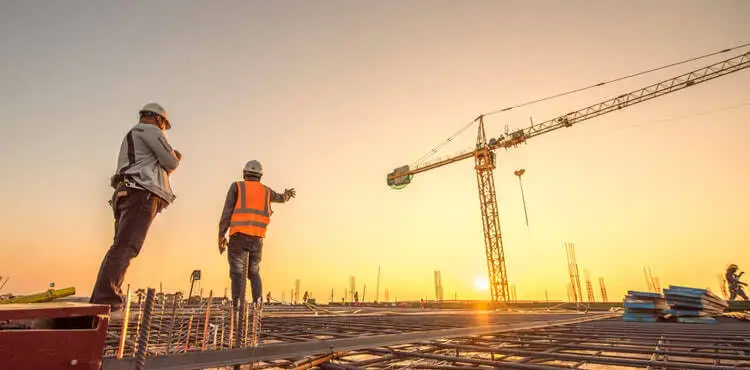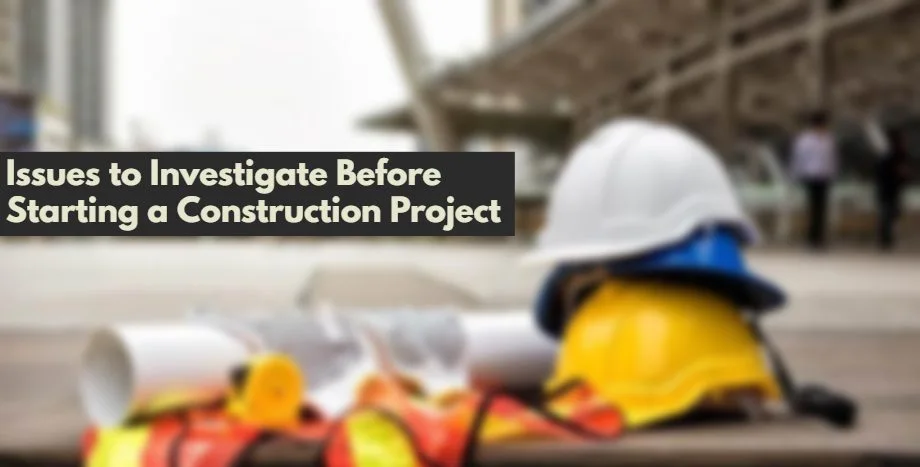The construction site and building materials are of great importance for any construction project in Canada. Canada is a cold-weathered country for most time of the year thus there could be ample issues that need to be considered & resolved. Not only the structure but also the foundation issue needs to be evaluated beforehand. Material testing lab in Edmonton helps you to investigate the foundation soil qualities for better planning of the construction project. Let us know a bit about the foundation problems that can occur if the material testing in Edmonton is not done for the land evaluation:
- The foundations must be shallow as possible, proportionate with climatic effects on, and also material testing in Edmonton is done to check the strength of the soil surface, particularly in the drenched ground. Digging in the seriously drenched ground can be expensive and sluggish.
- Costly and complex shuttering facts should be evaded, mostly in stiffened rafts. Consideration should be given to buildability.
- Cost reduction of piling, ground treatment improvements, advanced material testing in Edmonton for soil mechanics, etc. have significantly changed the economics of design, and several standard solutions are now out-of-date. There is a need to constantly review construction costs and techniques.
- Contractors and Engineers need to be more responsive to the expectations made in the design, the ground conditions variation, the occasional unsuitability of soil analyzed by material testing services in Edmonton, and the expediency of construction.
- The consistency of the soil by material testing technicians for critical assessment.
- Evaluation of the effect of construction on ground properties including deterioration of ground exposed by digging in adverse weather conditions, vibration from piling, removal of overburden, seasonal variation in the water table as well as compaction of the ground by the construction site.
- The variation in the shape, rigidity, and length of the foundation to evaluate the movement and settlement joints by material testing services in Edmonton.
- Repercussions on finished foundations of sulfate spell on concrete, ground movements due to shrinkable clays, frost heave as well as effects of trees. Moreover, changes in the local environment, e.g. re-routing of heavy traffic, new construction, and installation of plants in neighboring factories cause impact & vibration.
- Firm but affluent construction may be more cost-effective than low-cost wherein slow construction to clients requires a quick return on capital investment.
- Material Testing in Edmonton also evaluated the effect of foundation loading on neighboring structures.
With the above understanding of the issues regarding the foundation; there is a need for site investigation for a better construction plan and execution.
4 Phases of Construction Site Investigation for Better Construction Projects
Site investigation is an integral part of any construction project; this will include material testing in Edmonton because, without it; construction projects are probable to run into unforeseen problems. Moreover, the site investigation should be accredited with the best material testing lab in Edmonton for significance as recognized to any other part of the construction project. The risk linked with undertaking a construction project without acceptable site investigation is colossal. It is always wiser to be scared of the outfalls.
It has been verified again and again by inexperienced contractors that executing a project without site investigation is foolish and dangerous with the risk of destruction. Risk can be managed with material testing in Edmonton and its consequences minimized. However, it cannot be ignored entirely.
Trustworthy information obtained from the material testing in Edmonton for the site investigation enables designers to design strong and permanent construction projects. Proper planning is crucial for a construction project. Unanticipated risks are still a big part of a construction project and the investments related to the material testing in Edmonton are assigned to the contractor or proprietor, or shared between both. There are numerous material testing in Edmonton that are used for construction site investigation. ASTM (American Society for Testing and Materials) standards are established to aid in identifying, testing, and investigating the surface properties and subsurface material testing in Edmonton relevant to a specific construction project.

Construction Site Investigation
Drilling, boring, sampling, material testing, and nondestructive testing methods are employed to conduct construction site investigations. Testing and sampling are done from the surface on the field or at the lab. The material testing in Edmonton should remain undisturbed until sample testing is complete, to get a pure picture of subsoil conditions. The soil characteristics that can be attained are its chemical and material constituents, thickness, strength, and orientation.
Phases of Construction Site Investigation
Construction site investigation can be categorized into four stages: inspection, data and map study, comprehensive investigation, and Material Testing Lab in Edmonton.
Inspection
Simply investigating the construction site can sometimes offer a lot of information such as vegetation, topography, utility lines, and geological features. Interpretations made during site inspection include:
- Topography of the construction land including estuaries, water bodies, reserved land, and pits
- Presence of heritage structures, structures, utility lines, and trees
- Orientation and Slopes’ angles
- Existence of waste disposal sites or hazardous industries that could be possible public health perils
- Zones with loose soil, excess growth of vegetation, patches of soil discoloration, or foul smell
- The contrast of the plan with the existing situation including the addition of utility lines or new structures
Data and Map Study
Facts obtained from inspection now need to be systematically understood in order to regulate the necessary samples and material testing in Edmonton that needs to be composed for the next phases of construction site investigation, including comprehensive investigation and material lab testing in Edmonton. Data can be attained from local municipalities, county records, libraries, and survey offices as well as utility and service providers. Moreover, commercial records through the internet.
Old plans, geological maps, and photographs can be gained from the records or survey department. The study comprises:
- History of hazardous incidents, if any
- Existence of coal and other excavations
- Quality of groundwater and surface water vulnerability
- Past indigenous borehole records
- Historic mapping
- Existence of discharge consents and registered water abstraction, landfills, and waste disposal sites
- Hidden and overhead utility lines and supply
Comprehensive Investigation
Locations for boreholes and trial pits can be selected based on the above study. The choice should be such that a whole geologic sub-surface outlook can be obtained. Nonetheless, three points should be considered with a spacing of 10 to 30 meters reliant on construction site conditions and the type of construction project. Commonly probes, boreholes, and trial pits are employed to commence a comprehensive investigation.
Probes
This kind of material testing in Edmonton consists of static and dynamic cone penetration methods. Dynamic probes are alike to a standard penetration test (SPT) as well as the sum of blows obligatory to drive the cone 100 mm is noted. In static probes testing, the head of the cone senses to record the resistance to driving force.
Boreholes
Boreholes are employed widely for construction site investigation because they are less troublesome to the surface than trial pits. Moreover, can be reserved to a greater depth. Likewise, boreholes can be penetrated through subsurface strata using rotary drilling, percussion drilling, power augering and wash boring. Boreholes drilled by means of the percussion method are appropriate for the installation of monitoring systems that offer valuable information. Moreover, in rotary drilling, a drill bit is replaced at the bottom of the borehole exhausting core drilling or open-hole drilling.
Core drilling is chosen because the core is reserved within the core container and brought to the surface for analysis. Occasionally smaller, moveable drilling equipment may be required where retrieving ideal sampling locations is problematic.

Trial Pits
Such pits are dug-in soils that can upkeep themselves for the prerequisite time needed to conduct the investigation. Shoring may be required in loose soils. There are depth limitations in trial pits, and the subsequent area of ground that is troubled is also quite large. In ecologically sensitive locations, trial pits may not be acceptable. The compensations are that it designates vertical and lateral variations in the subsoil layers.
Material Lab Testing in Edmonton
The soil recovered during the comprehensive soil investigation is verified in the lab at this phase. The material testing in Edmonton results obtained is classified and characterized, and created on the project, geotechnical considerations are provided for the design phase. The simple tests are:
Shear Strength Test
For cohesive soils, material testing in Edmonton is done for long-term stability, short-term stability, and residual shear strength properties with the shear box test. However, for granular soils, the test is done for both long-term and short-term stability analysis.
Classification Test
For consistent soils, the material lab testing in Edmonton is done for plasticity index, moisture content, particle size distribution, and bulk density. Wherein, granular soil tests, are prepared for particle size distribution and bulk density.
Central Material Testing is a Canadian-based material testing company offering its services for soil, concrete, asphalt & other quality control testing for construction site projects with great efficiency & 100% guaranteed results.



Leave a Reply